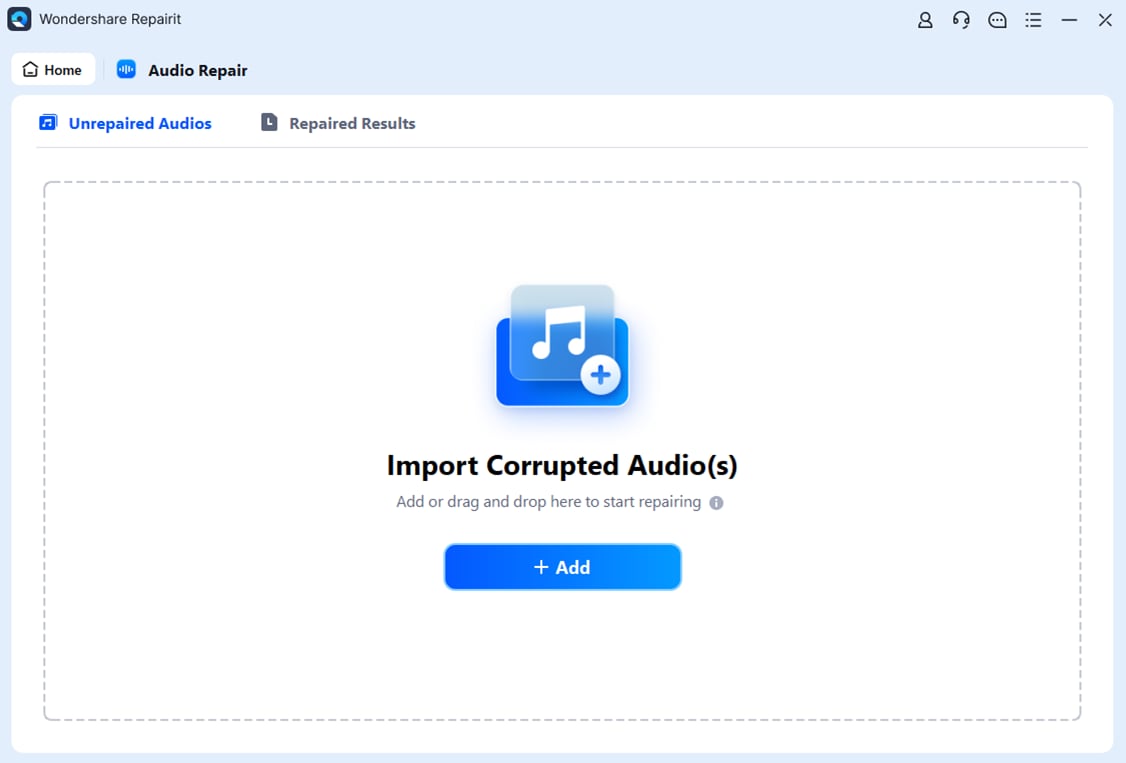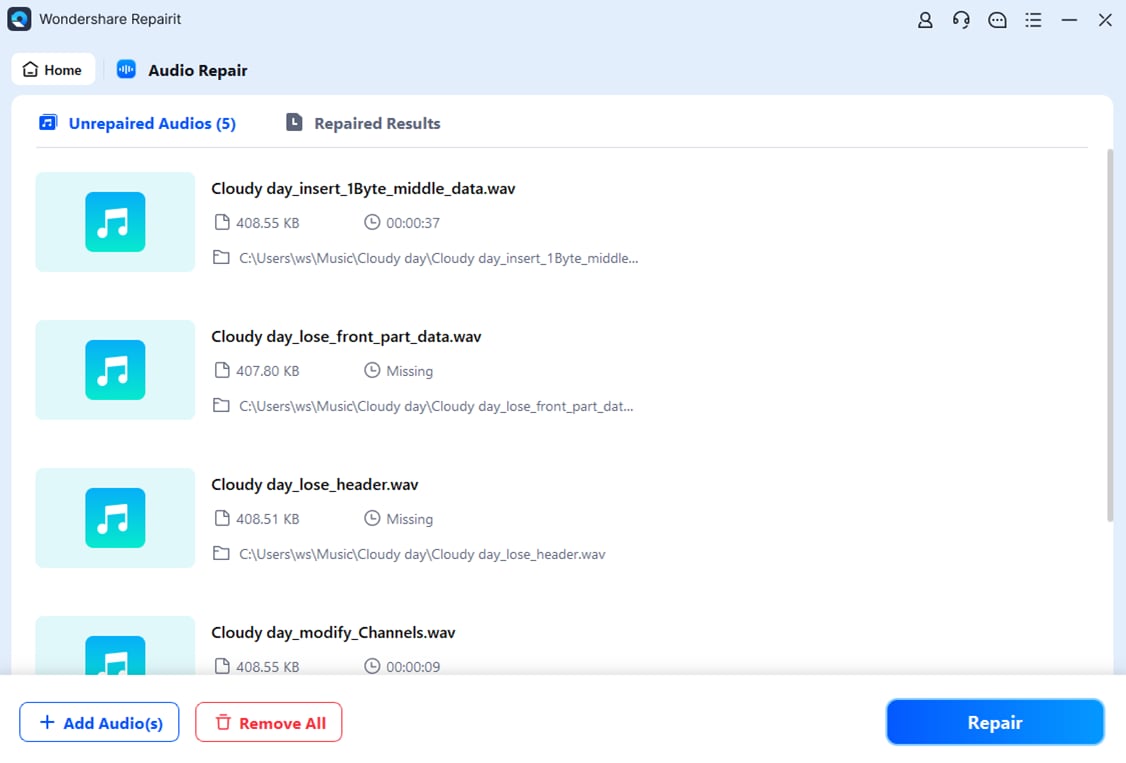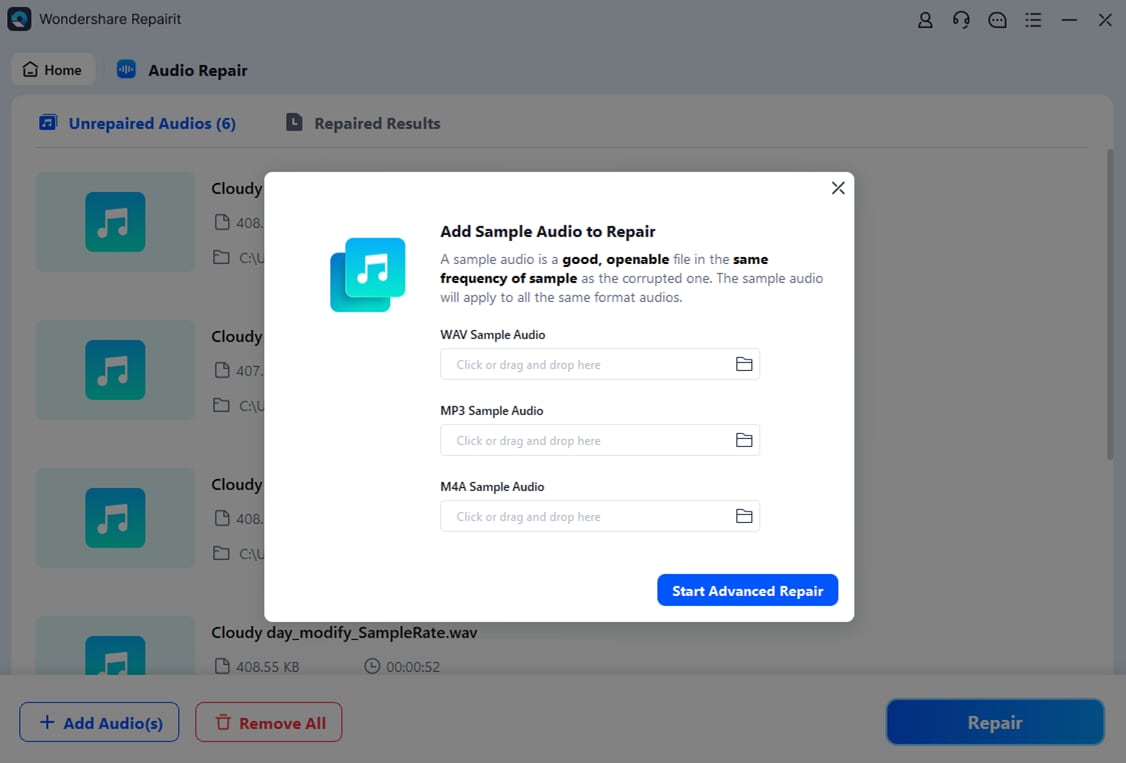Screen recording has become an essential tool for various purposes, including tutorials, presentations, and gameplay captures. However, encountering no audio on-screen recording issues can be frustrating, especially when you need to share or review critical audio content.
Whether you're using screen recording software for personal or professional purposes, audio loss can render your recordings useless.
Yes, screen record no audio problems are more common than you might think, affecting both Windows and Mac users worldwide. The good news is that most cases of "my screen recording has no sound" can be fixed with the right approach.
In this comprehensive guide, we'll explore why screen recorder audio not working occurs and provide you with proven solutions to get your audio back on track.
In this article
Part 1: Screen Recording No Sound? Here's Why!
Before diving into solutions, let's understand the common causes of no audio on screen recording:
- Permission Issues: Browser or application blocking audio access. Operating system restrictions. Security settings preventing audio capture
- Hardware Problems: Faulty microphone connections. Damaged audio drivers. Incorrectly configured sound cards
- Software Settings: Muted system volume. Wrong audio input/output selection. Outdated recording software. Incompatible audio codecs
- System Issues: Conflicting audio services. Outdated operating system. Background processes interfering with audio capture
Part 2: How to Fix No Audio On Screen Recording Issue
Fix 1: Use Repairit Audio Repair to Fix File Corruptions
Sometimes, the screen recording no sound issue occurs due to corrupted audio files. Repairit Audio Repair is a powerful tool designed specifically to address such problems.
Corrupted audio files can result from interrupted recordings, system crashes, or software glitches. Repairit analyzes and repairs the audio portion of your recording without affecting the video quality.
Benefits:
- Recovers lost audio tracks
- Fixes corrupted audio files
- Maintains original video quality
- Works with multiple file formats
- User-friendly interface
Steps to Use Repairit:
Step 1: Install Repairit Audio Repair. Launch the program and select "Audio Repair". Upload your screen recording file.

Step 2: Click "Repair" to analyze audio issues.

Step 3: Preview the repaired file. Save the fixed version to your desired location.

Fix Your Corrupted Audio Files Now

Fix 2: Check Microphone Settings
When your screen recorder audio not working, incorrect microphone settings are often the culprit. This simple yet effective fix ensures your system recognizes and uses the right audio input device.
Many users experience the "my screen recording has no sound" issue simply because their system isn't properly configured to capture audio from the right source.
Benefits:
- No additional software required
- Quick and easy to implement
- Prevents future audio recording issues
- Improves overall audio quality
Steps to Check Microphone Settings:
Step 1: On the Taskbar, right-click the “Speaker” icon. Select "Sound settings".

Step 2: Choose your preferred microphone. Test the microphone using the level indicator.
Fix 3: Adjust Volume Levels
Incorrect volume settings can lead to screen record no audio issues. This fix ensures all volume levels are properly configured for optimal recording.
Sometimes, the audio is actually being recorded but at such low levels that it appears to be missing. Adjusting volume levels ensures clear, audible recordings.
Benefits:
- Improves audio quality
- Prevents silent recordings
- Balances system and app volumes
- Easy to implement
Steps to Adjust Volume:
Step 1: Open Volume Mixer (right-click speaker icon). Check main system volume. Verify recording software volume.

Step 2: Adjust application-specific volumes. Test recording with new settings
Fix 4: Restart Devices
A simple restart can often resolve screen recording no sound issues by clearing temporary glitches and refreshing system processes.
Restarting clears cached data, terminates stuck processes, and reestablishes audio connections, often resolving temporary audio capture issues.
Benefits:
- Clears temporary system issues
- Resets audio services
- No technical knowledge required
- Quick solution
Steps for Proper Restart:
Step 1: Save all work. Close all applications. Restart your computer.

Step 2: Wait for a complete boot-up. Test audio recording
Fix 5: Update Audio Drivers
Outdated or corrupted audio drivers often cause no audio on screen recording problems. Keeping drivers updated ensures optimal performance.
Current drivers provide better compatibility, fix known bugs, and improve audio capture capabilities.
Benefits:
- Enhanced audio performance
- Better compatibility
- Fixes known issues
- Improves stability
Steps to Update Drivers:
Step 1: Open Device Manager. Locate "Sound, video and game controllers". Right-click your audio device. Select "Update driver".

Step 2: Choose automatic driver search. Restart computer if prompted
Fix 6: Run Audio Troubleshooter
Windows' built-in audio troubleshooter can automatically detect and fix common audio recording issues.
The troubleshooter runs comprehensive diagnostics and applies proven solutions for common audio problems.
Benefits:
- Automated problem detection
- Built-in fix implementation
- No technical expertise needed
- Free and readily available
Steps to Run Troubleshooter:
Step 1: Open Windows Settings. Navigate to System > Troubleshoot. Select “Other Troubleshooters”. Now hit the “Run” button placed next to the “Audio” troubleshooter.

Step 2: Run the troubleshooter. Follow on-screen instructions
Fix 7: Use a Different Recording Tool
If your screen recorder audio not working persists, switching to a different recording tool might be the solution.
Different recording tools use various methods to capture audio, and some may work better with your specific system configuration.
Benefits:
- Access to new features
- Better compatibility
- Different capture methods
- Fresh start with settings
Steps to Switch Tools:
Step 1: Research alternative recording software. Download a reputable tool. Install and configure settings.

Step 2: Test audio recording. Adjust settings as needed
Part 3: Tips to Avoid No Audio on Screen Recording Problems
Encountering no audio on screen recording problems can be frustrating, especially when you need to share or review critical audio content.
To minimize the risk of audio loss and ensure seamless screen recording, follow these practical tips:
- Regular System Checks: Run weekly audio tests. Keep drivers updated. Monitor system performance
- Pre-Recording Routine: Test audio levels before important recordings. Check microphone connections. Verify software settings.
- Backup Solutions: Keep alternative recording software installed. Have a backup microphone ready. Save audio driver installers offline
- Maintenance Schedule: Clean audio ports monthly. Update software regularly. Defragment hard drive
- Quality Control: Record short test clips before long sessions. Monitor audio levels during recording. Save recordings frequently
- Documentation: Keep notes of working settings. Document successful configurations. Save troubleshooting steps
- Professional Setup: Use quality microphones. Invest in audio interfaces. Consider acoustic treatment
Conclusion
Screen recording no sound issues can be frustrating, but with the right approach, they're usually fixable. By following the solutions and preventive measures outlined in this guide, you can ensure your future recordings capture audio perfectly. Remember to test your setup before important recordings and maintain regular system checks.
Whether you're a content creator, educator, or casual user, having reliable audio in your screen recordings is crucial. Keep this guide handy for quick reference, and don't hesitate to try multiple solutions if needed.
With proper maintenance and attention to detail, you can avoid most common audio recording issues.
FAQ
-
Q: Why does my screen recording have no sound even though my microphone works fine?
This common issue often occurs due to incorrect permission settings or software configuration. First, check if your recording software has permission to access your microphone. Then, verify that the correct audio input device is selected in your recording software's settings. If these are correct, try running the Windows audio troubleshooter to identify and fix any system-level issues. -
Q: Can corrupted audio drivers cause screen recording no sound issues?
Yes, corrupted or outdated audio drivers are a frequent cause of screen record no audio problems. Drivers act as the bridge between your hardware and software. When they're corrupted or outdated, they can prevent proper audio capture. Regularly updating your audio drivers through Device Manager or manufacturer websites can prevent these issues and ensure optimal performance. -
Q: How can I test if my screen recorder audio not working issue is fixed?
The best way to test your fix is to create a short test recording with both system audio and microphone input. Start by recording a brief clip (30-60 seconds) that includes playing a video or music file while speaking into your microphone. Play back the recording to verify both audio sources are captured clearly. If either source is missing or unclear, revisit the troubleshooting steps focusing on the specific audio source that's problematic.


 ChatGPT
ChatGPT
 Perplexity
Perplexity
 Google AI Mode
Google AI Mode
 Grok
Grok

